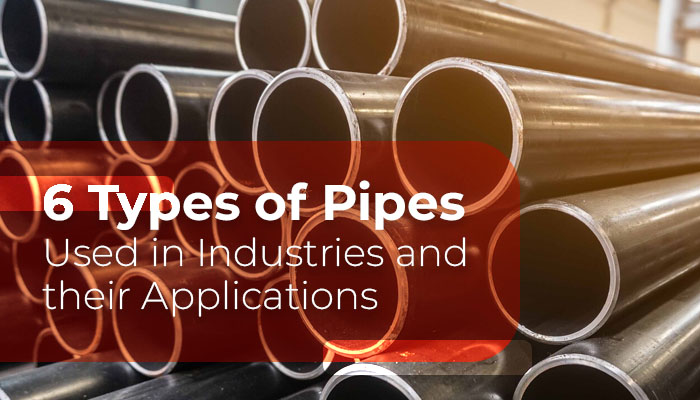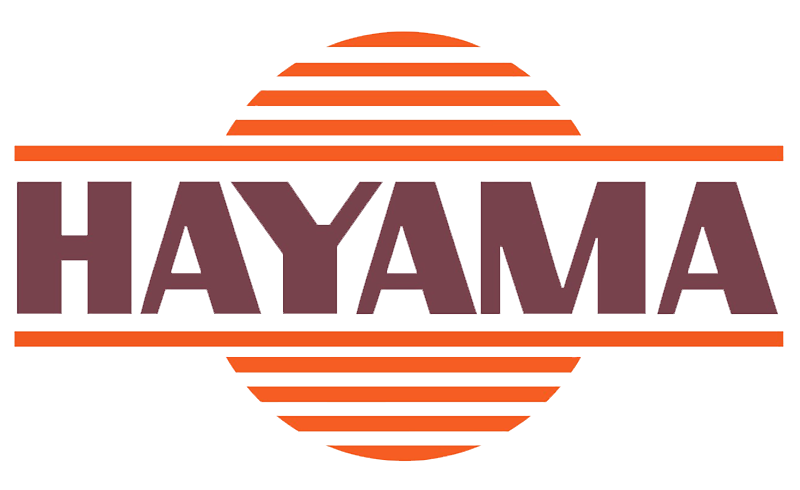
Industrial pipes are vital components in several industries. These circular hollow products can transport liquids, gases, and fluidized solids from one place to another. Pipes can be manufactured from different materials in varying lengths, diameters, and thicknesses. Several factors such as durability, strength, cost, and corrosion resistance must be carefully considered when you are choosing the pipes for your business needs.
There are many types of pipes used in industries such as construction, plumbing, petrochemical, pipeline, power sector, and refineries, among others. Each type has its unique properties and different applications so it is important to select the right one that will suit your business requirements. Let us check the common types of pipes that are widely used in the industrial sector for various purposes.
6 Types Of Industrial Pipes And Their Applications
1. Steel Pipes
Steel pipes are durable, strong, and resistant to high pressure which make them the ideal types of pipes used in industries like the construction sector. They are used for structural purposes like scaffolding, framing, and in the construction of buildings and bridges. Steel pipes are used in the manufacturing of industrial equipment, and machinery, and for the production of conveyor systems, boilers, and heat exchangers. They are also utilized in the manufacturing of automotive parts like suspension components and exhaust systems. In the oil and gas industry, steel pipes are essential components for drilling and well operations, and for the transportation of oil and gas over long distances through pipelines.
2. PVC Pipes
PVC (polyvinyl chloride) pipes are plastic pipes that are widely used due to their durability, affordability, and corrosion resistance. Aside from being lightweight, PVC pipes are easy to install and maintain. They are commonly used in irrigation, drainage, and wastewater treatment systems. These types of pipes are relatively less expensive than steel or copper. They can be manufactured in a variety of dimensions and thicknesses for any specific application requirements. If you are looking for suitable types of pipes used in industries that are typically exposed to harsh environments, then try using PVC pipes. They are resistant to chemicals, corrosion, and UV radiation.
3. Copper Pipes
Copper pipes are used in air conditioning, plumbing, and refrigeration systems due to their efficient heat conductivity and anti-corrosion properties that enable them to last a long time. They are also lightweight, easy to install and maintain, and flexible. Copper pipes can be bent and fitted into tight spaces which makes them suitable for many applications like residential plumbing systems and large-scale industrial HVAC systems. These types of pipes used in industries can be recycled which is an ideal eco-friendly option for piping applications. Copper does not lose its properties even when it is recycled several times. Copper pipes can be melted down and reused to produce new copper products.
4. HDPE Pipes
HDPE (high-density polyethylene) pipes are types of pipes used in industries due to their strength, durability, and resistance to corrosion. They are created from a thermoplastic material that can be melted and reshaped several times without losing its strength. Since HDPE pipes can resist corrosion and chemicals, they can be used in chemical processing plants and sewage treatment facilities. They are also suitable for outdoor applications because they are resistant to UV radiation. Like other types of pipes used in industries, HDPE pipes are lightweight and easy to install and maintain so they can be utilized in various applications. They are also less expensive than other materials like steel or copper.
5. Concrete Pipes
Concrete pipes are suitable for drainage and sewage systems, and commonly as culverts. These types of pipes used in industries are manufactured by crushing aggregates. You have to carefully move them from one location to another because they are heavy. However, they can withstand the weight of the earth that surrounds them and the heavy loads that pass over them. Unreinforced concrete pipes are most often used for the drainage of rainwater and come in small diameters. In contrast, reinforced and pre-stressed concrete pipes have larger diameters that are utilized in important water supply operations. They are reinforced with other materials such as steel to make them stronger.
6. Galvanized Iron Pipe (G.I.)
G.I. pipes are used to supply water, gas, and other liquid inside the building. They are made of mild steel sheets. These pipes are dipped in zinc solution to prevent them from rusting. This process is called galvanizing. These types of pipes can last for 10 years. They are inexpensive and lightweight. G.I. pipes are not appropriate in places where water has a high content of dissolved salts such as magnesium or calcium. Acidic and alkaline waters have negative effects on these pipes. However, these types of pipes used in industries such as automotive, architectural, agricultural, aerospace, and telecommunications installations remain one of the preferred choices in industrial applications.
ALSO READ: Understanding the Different Stages of Metal Fabrication Processes
Industrial pipes are important in various industries since they are utilized to transport liquids, gases, and fluidized solids from one location to another. Since there are many types of pipes used in industries, you must carefully choose the right one for your business. Although some pipes have similar characteristics, they have various applications in industries such as construction, pipeline, automotive, plumbing, agriculture, and many more.
Hayama Industrial Corporation (HIC) has been providing world-class and innovative solutions in the manufacturing and fabrication industry in the Philippines for more than four decades. We are experts in the Design, Fabrication, Manufacturing, Rehabilitation, Installation, and Commissioning of Packaging Equipment. Hayama offers services such as its Piping System. We have the manpower and the resources to perform piping system installation in the country and even overseas. Whether it involves oil, steam, refrigerant, water, or compressed air, you can count on the experienced team of Hayama to complete the projects while ensuring there is strict environmental compliance. In need of a durable piping system for your next industrial project? Hayama can help.

Recent Comments